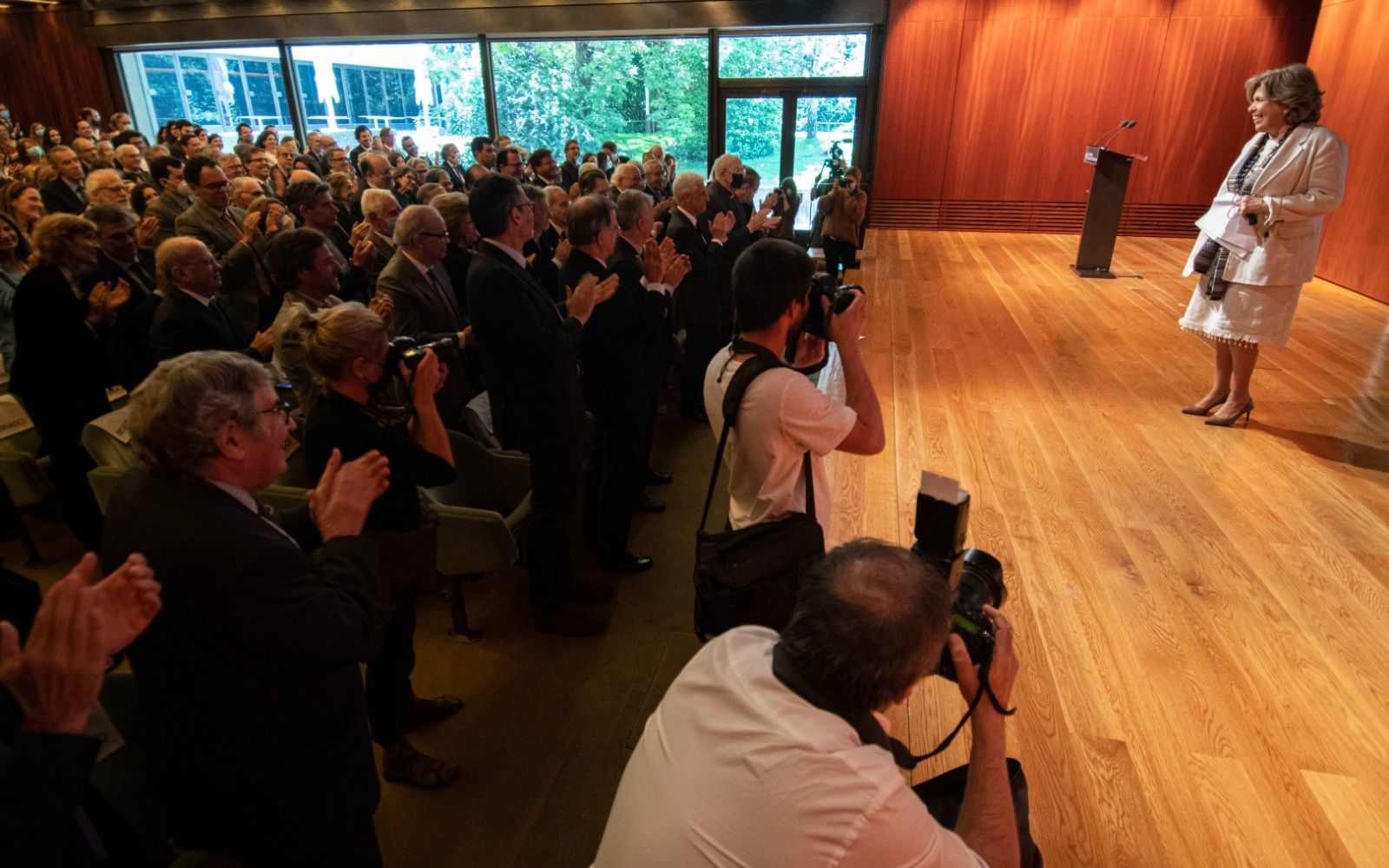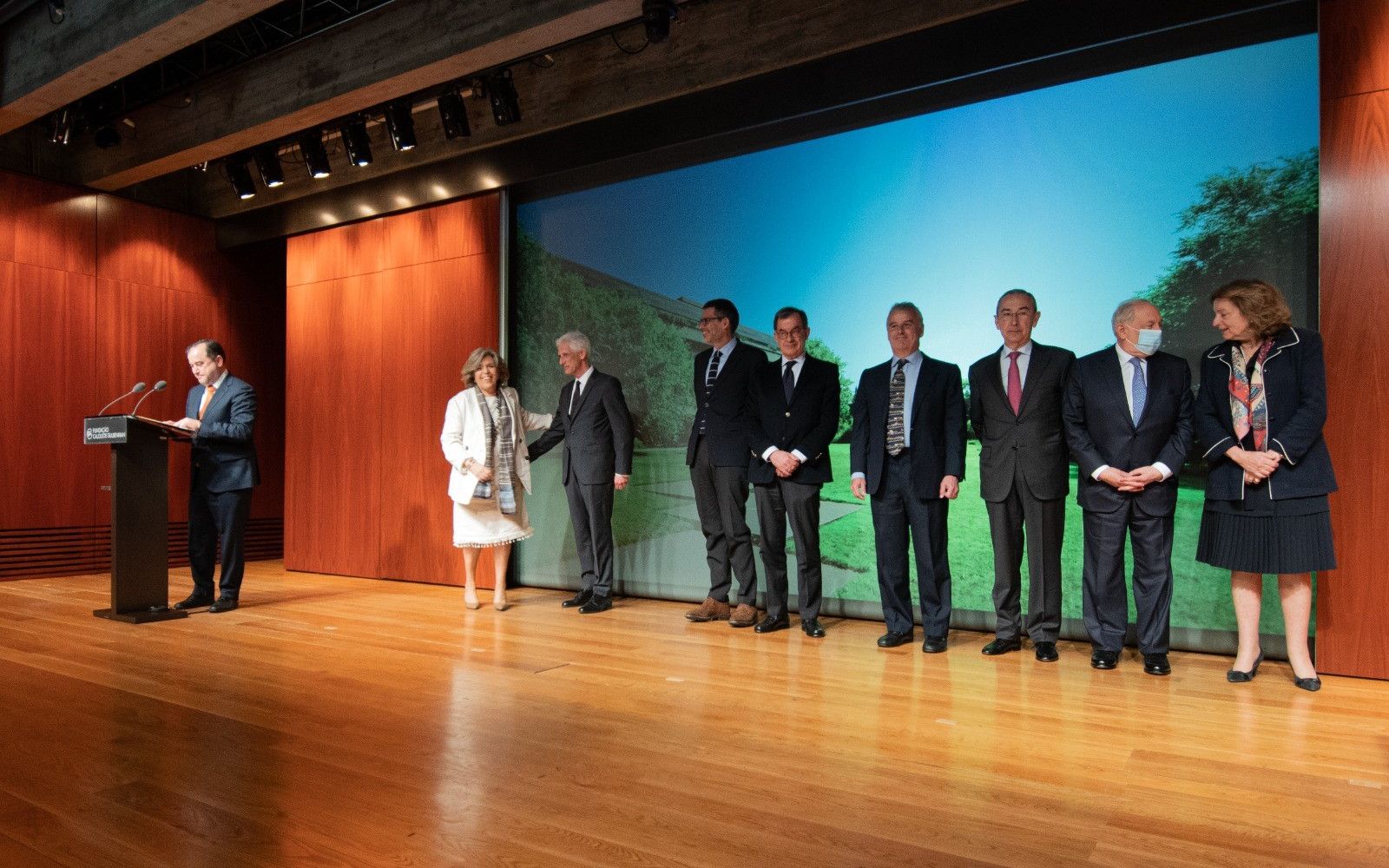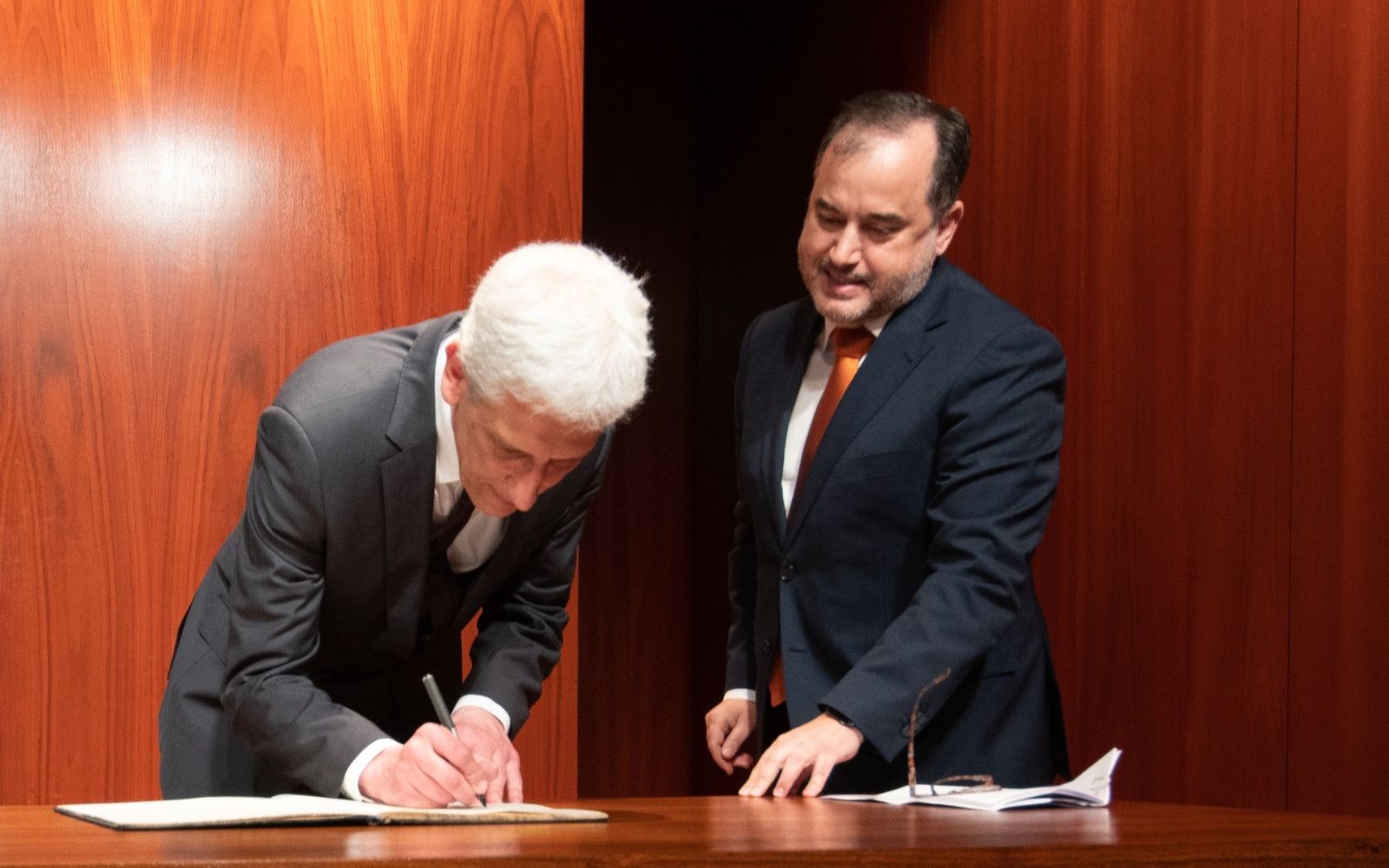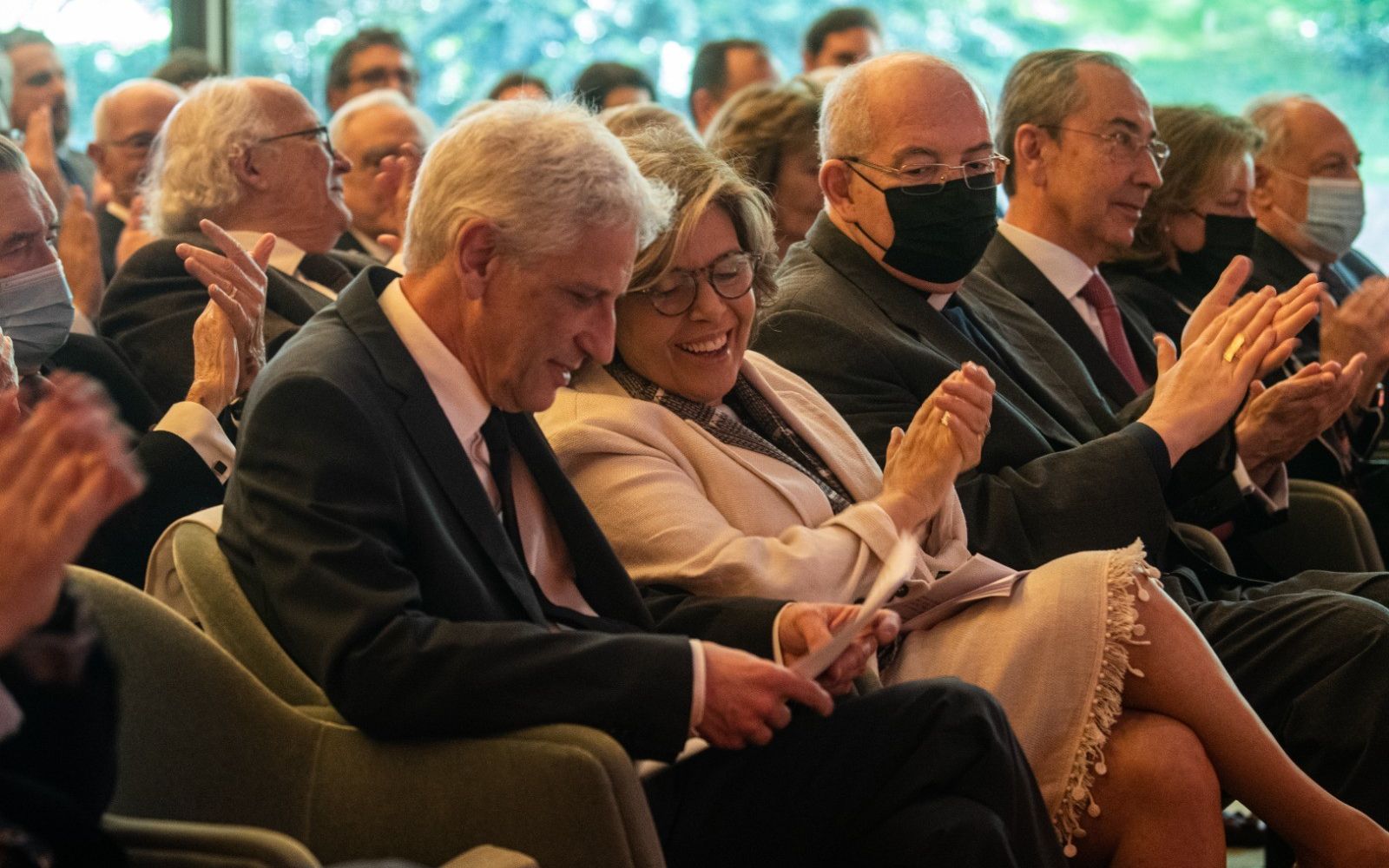António Feijó is the new President of the Gulbenkian Foundation
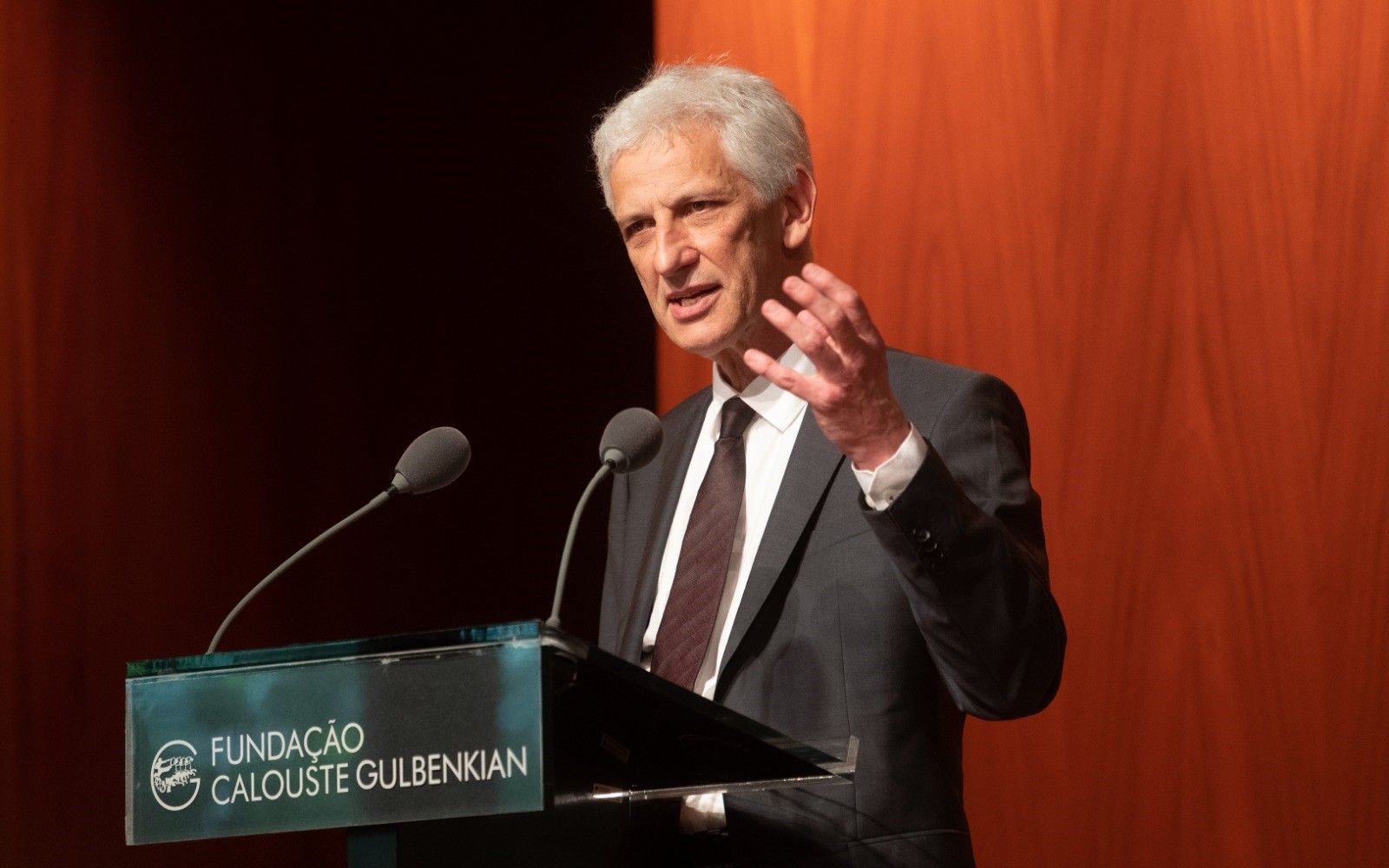
Facing a full and emotional auditorium following the words of farewell from Isabel Mota, the new president addressed his first words to the staff of the institution he now leads. Highlighting the nostalgia left behind by the “brilliance of the event or the initiatives stored away in his memory”, he revealed that “behind the brilliance of these Foundation activities, there hides the professional performances of its members of staff. This essentially discreet professionalism, so discreet that it does not even aim to be perceived as discreet, nevertheless remains perceptible.” This is, he said, a feature of “an internally active and dedicated culture nurtured over the course of decades.”
Throughout 20 minutes, the President perused the history of the Foundation that started out in a “context of emptiness” to become an “official Ministry of Culture for a country otherwise largely deprived of structures in this field”; he continued, as an “institution whose oxygen is freedom” under the totalitarian regime; before witnessing regime change and the “attempted takeover that the Foundation was subject to”. Continuing on through history, with “examples of a difficult relationship in an adverse context”, to highlight the “need for the Foundation to persist autonomously in everything that it decides and does and in order to remain separate from every power”.
Listing the four original statutory purposes – Art, Science, Education and Benevolence – he explained how the three strategic axes that have reflected the activity plan that ends this year: Knowledge, Social Cohesion and Sustainability. “Others shall follow them, perhaps more economic and determined by what is then deemed as the most appropriate response to the pressures prevailing.”
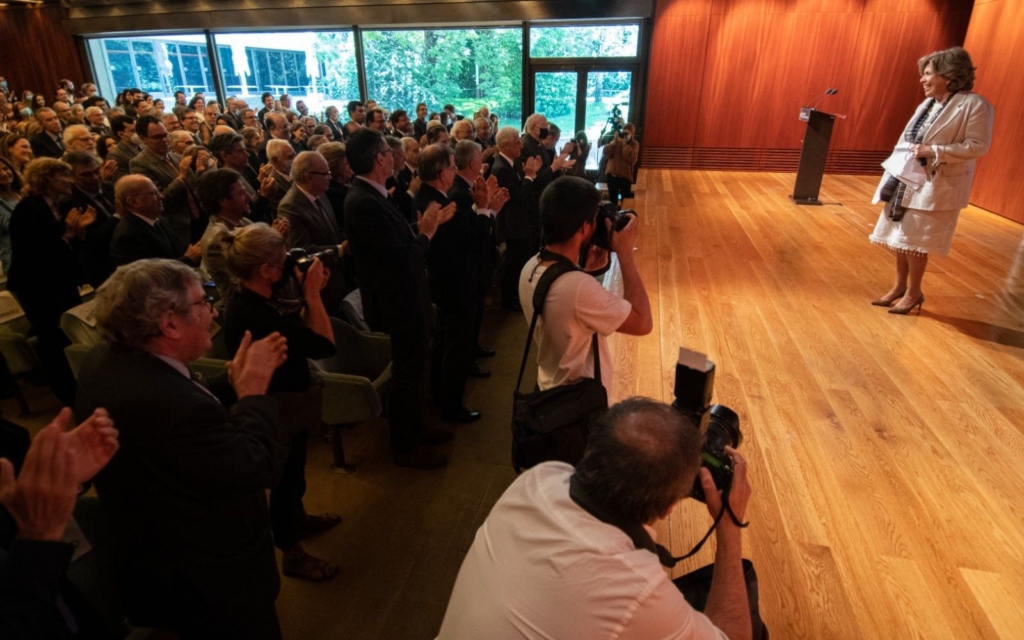
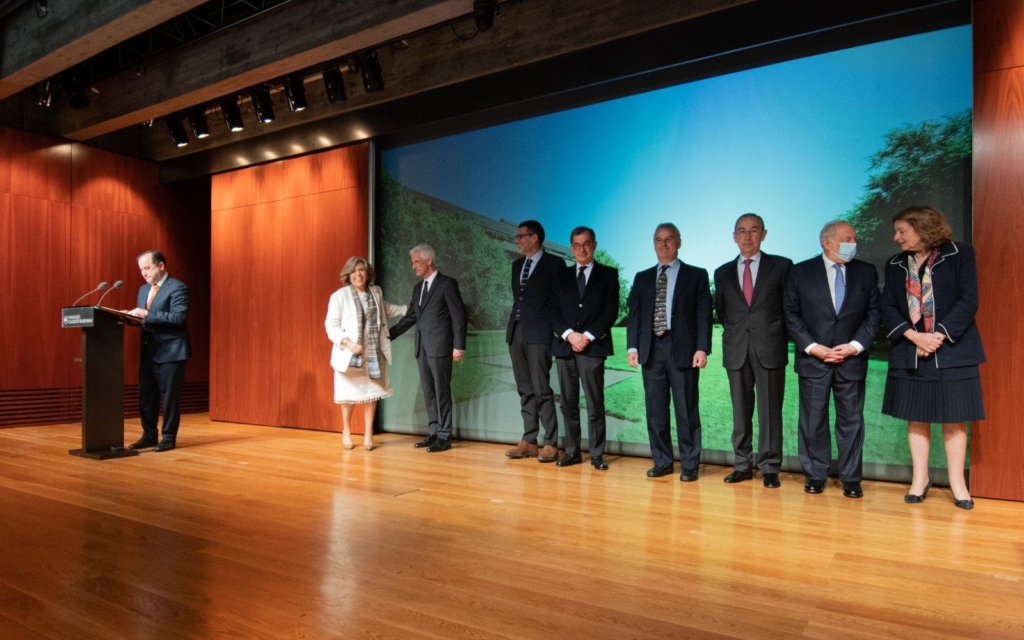
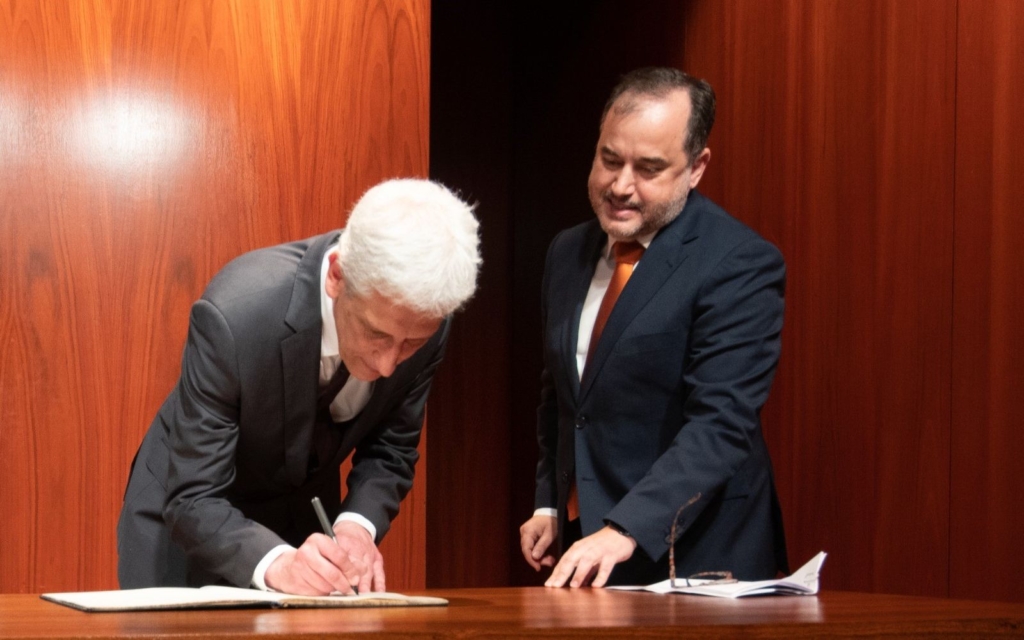
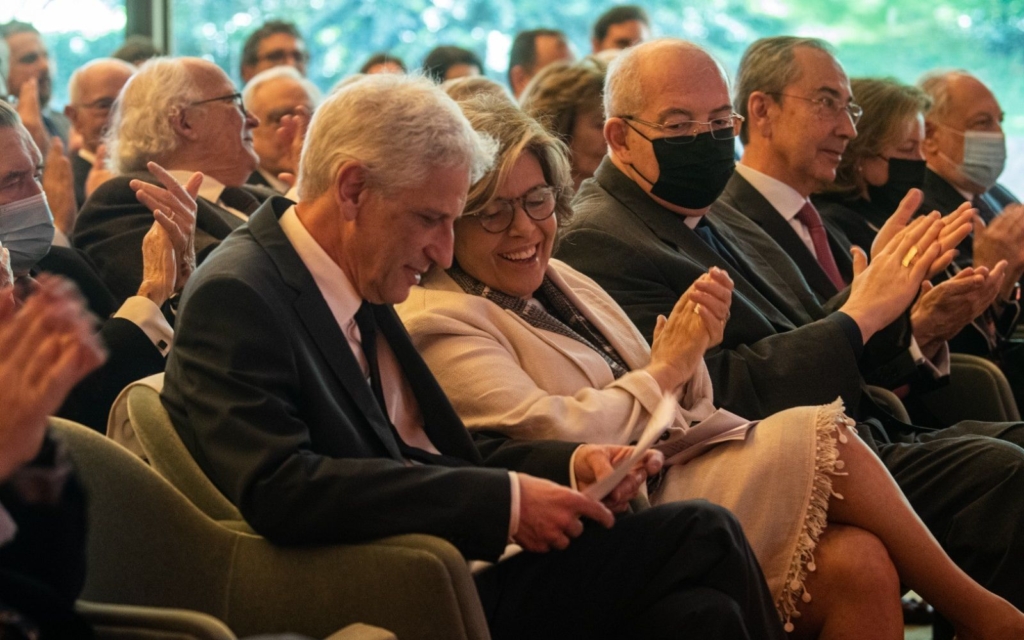
The Foundation is, according to the new President, “a philanthropic entity that hosts the legacy left by a personality of a rare dimension, both of his times and his century, Calouste Sarkis Gulbenkian. Statutorily defined as in perpetuity, this requires whoever at any moment is leading to abide by the duty of seeking to secure this goal and protect the integrity of this legacy.” As regards the issues around perpetuity, with their extensive and complex debates, António Feijó considered it “important to retain the perpetuity of the Foundation as a horizon for every major decision taken by the fiduciaries responsible. This has indeed been the case. The perpetuity of the Foundation has been ensured by the prudent management of its patrimony.”
However, there is “another position of principle that also prevails: that no philanthropic institution every has the resources necessary for its activities. The goals striven for are always inexhaustible and always open.”
The time had come for “somebody linked to Culture and the Humanities to take over the presidency of the Foundation.” A Tenured Professor in the Department of English Studies and the Literature Theory Program, António Feijó maintained “while accepting a certain unusualness in the background in the Humanities [of the new President], this perhaps consists of a certain resourcefulness in the usage of particular allusions or references”. And, there was reference to the “prophetic capacities of certain literary works”, concluding by referring to the late 19th century novel by the American writer Henry James. The novel describes “how a young woman from the most exclusive social circle of Boston becomes the victim of a marriage with a very fine but cruel dandy and, in fact, morally corrupt”. The young lady is at one time described by an admirer as a singularly free spirit. So free “that nobody would ever be surprised if she were to marry exotically with an Armenian or a Portuguese. Well, as we all know, an analogous alliance came about in reality, in another fashion, and not many decades later. The result, it has to be recognised, has been profoundly beneficial, splendid and rich and of great grandeur.”
More info

